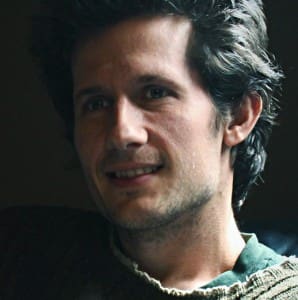 Tell us about yourself and how many books you have written.
Tell us about yourself and how many books you have written.
I was raised in the Amazon Basin of Peru, South America as the child of missionary teachers. After graduating high school, I got a BA in English in British Columbia, Canada. I paid for this degree by planting hundreds of thousands of tree-seedlings on cut-blocks in BC and Alberta.
After graduating college I moved to North Carolina, but continued to spend my summers in the world of industrial reforestation as a crew leader and, eventually, a camp supervisor. I met a woman, married her, and moved back to Canada to put her through school. We had a son, but after moving back to North Carolina in 2008, she chose to end our marriage.
I was devastated, and turned to writing-as-therapy in a way I never had before. I wrote a memoir (unpublished) entitled “Anatomy of an Effup,” in which I explored the disintegration of my marriage. Then I wrote a short book of experimental theology. After that, I got into writing for film. To date, I’ve written around fifteen short films, and seven feature-length screenplays.
My second feature-length, “Killing Harper,” is at this writing a quarter-finalist for the 2013 Nicholl Fellowship. The Nicholl is put on by the Academy of Motion Pictures (the Oscars people), and is the most prestigious screenwriting competition in the world. Needless to say, I’m quite pleased.
What is the name of your latest book and what inspired it?
My latest book is a short story collection entitled “IMMORTALITY (and other short stories).” It was inspired by a talk Ray Bradbury once gave at Point Loma University, in which he said something to the effect that everyone’s trying to write the next great American novel, and it’s just too much pressure. Instead, he suggested, why not try writing a short story a week for a year? At the end of the year, you’ll have fifty-two short stories.
I took the Ray Bradbury challenge, and at the end of the year had written forty-six short stories (I got sick a couple times and missed). I picked my favorites, wrote a few more, and after editing them all more times than I want to think about, ended up with the twenty-two stories that make up this collection.
What authors, or books have influenced you?
I read like a mad Hessian bibliophile, trapped in a burning library. I suppose I’m influenced fairly strongly by post-WWII American authors, but there’s a lot to be said for some of the Russians, and there is quite a bit of really good stuff being written by my contemporaries. Who was it who said you’ve got to steal from as many other writers as possible? That’s pretty much my modus operandi.
What are you working on now?
I’m currently heading back into rewrites on my latest feature-length film script. It’s tentatively entitled “The Founder,” and it’s about a teenage computer-genius who hijacks an untested time machine and finds himself in a post-apocalyptic future where what little technology remains is under threat, and his is the most hated name on the planet. I’m pretty excited about it.
Do you have any advice for new authors?
Write all the time. When you’re not writing, re-write. When you’re not re-writing, read. There are no shortcuts. Excellence only happens at the far side of a whole lot of work. You are not the exception.
What is the best advice you have ever heard?
Write like you think.
What are you reading now?
“The Stand,” by Stephen King.
What’s next for you as a writer?
I’m always thinking about the next film script. As far as prose goes… I’d like to tackle a novel. Kicking around a few ideas, still. We’ll see what sticks.
Author Websites and Profiles
Josh Barkey Website
Josh Barkey Amazon Profile
Josh Barkey’s Social Media Links
Goodreads Profile
Twitter Account